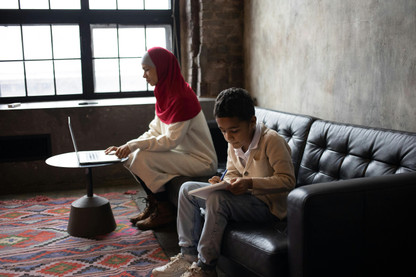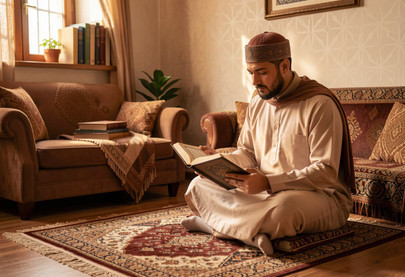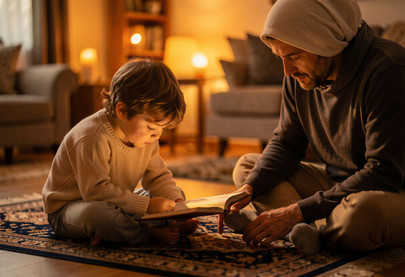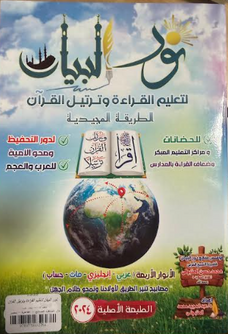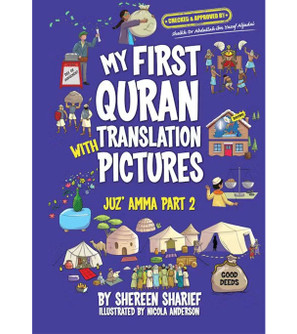8 Ways To Teach Your Child How To Learn Arabic
Arabic is more than just a language; it is a gateway to understanding the Quran, Islamic culture, and centuries of rich history. For Muslim families, helping children learn Arabic strengthens their spiritual connection and opens doors to deeper comprehension of faith. However, teaching kids Arabic can feel overwhelming without the right strategies. The good news is that there are practical and enjoyable ways to guide your child through this process.
Here are eight proven methods to make Arabic learning both effective and fun for children.
1. Start With the Basics of the Alphabet
A strong foundation begins with recognizing the Arabic letters and their sounds. Instead of overwhelming your child with all 28 letters at once, introduce them gradually. Use charts, flashcards, and simple repetition to help them memorize shapes and pronunciation. Interactive books like Beginner’s Arabic Reading are an excellent resource because they break down each letter into simple steps, making it easier for young learners to build confidence as they read.
2. Integrate Arabic Into Daily Conversations
Children pick up languages faster when they hear them in context. Try using simple Arabic words during everyday routines—greetings such as “As-salamu alaikum,” words for common objects like “kitab” for book, or phrases like “shukran” for thank you. When your child consistently hears Arabic in daily life, it becomes natural rather than forced. To help with vocabulary, a reference guide like Arabic at a Glance can give you and your child quick access to commonly used words and phrases.
3. Turn Learning Into Play
Games make learning exciting and memorable for children. Use letter-matching games, memory cards, or Arabic alphabet puzzles to keep them engaged. You can also design simple challenges like guessing a word of the day or creating an Arabic scavenger hunt around the house. This playful approach ensures your child sees Arabic as something enjoyable, not a chore.
4. Connect Learning to the Quran
One of the most meaningful ways for your child to learn Arabic is through the Quran. Start with short surahs, teaching both the recitation and the meaning behind the verses. This helps children develop pronunciation skills while deepening their spiritual understanding. A book like Learning Arabic: Language of the Quran can be invaluable here, as it focuses on the vocabulary and structure used in Quranic Arabic, making it easier for kids to link language learning with their faith.
5. Use Visual Learning Tools
Children are naturally drawn to visuals, so incorporating posters, charts, and labels into your home can reinforce Arabic vocabulary. Label common household items in Arabic, or place an alphabet chart where your child can see it daily. Consistent exposure through visual cues helps children remember letters and words effortlessly.
6. Make Reading Arabic a Family Activity
Reading together not only strengthens language skills but also creates quality bonding time. Start with beginner-friendly books and short stories in Arabic that use simple vocabulary. If your child is at the early stages, use guides that introduce words and phrases step by step. Books like Arabic Script Hacking are particularly helpful because they teach script recognition in a structured, easy-to-follow format.
7. Encourage Writing and Script Practice
Writing helps reinforce what children learn. Encourage your child to practice writing letters and simple words every day, even if it’s just for a few minutes. Use lined notebooks for proper letter formation and gradually move to writing short sentences. Combining writing with reading activities ensures that your child develops both recognition and production skills.
8. Stay Consistent and Celebrate Progress
Consistency is essential when teaching a new language. Set aside a few minutes each day for Arabic learning—this regularity creates habits that last. Celebrate small milestones like writing their first full sentence or memorizing a new surah. Positive reinforcement builds confidence and keeps motivation high. Remember, the goal is steady progress, not perfection overnight.
Helping your child learn Arabic is one of the greatest gifts you can give them. It connects them to their faith, broadens their understanding of culture, and opens up a world of linguistic beauty. With patience, creativity, and the right resources, Arabic learning can become a rewarding journey for the entire family. For more books and guides to support your child’s learning, click here to explore our full collection.

